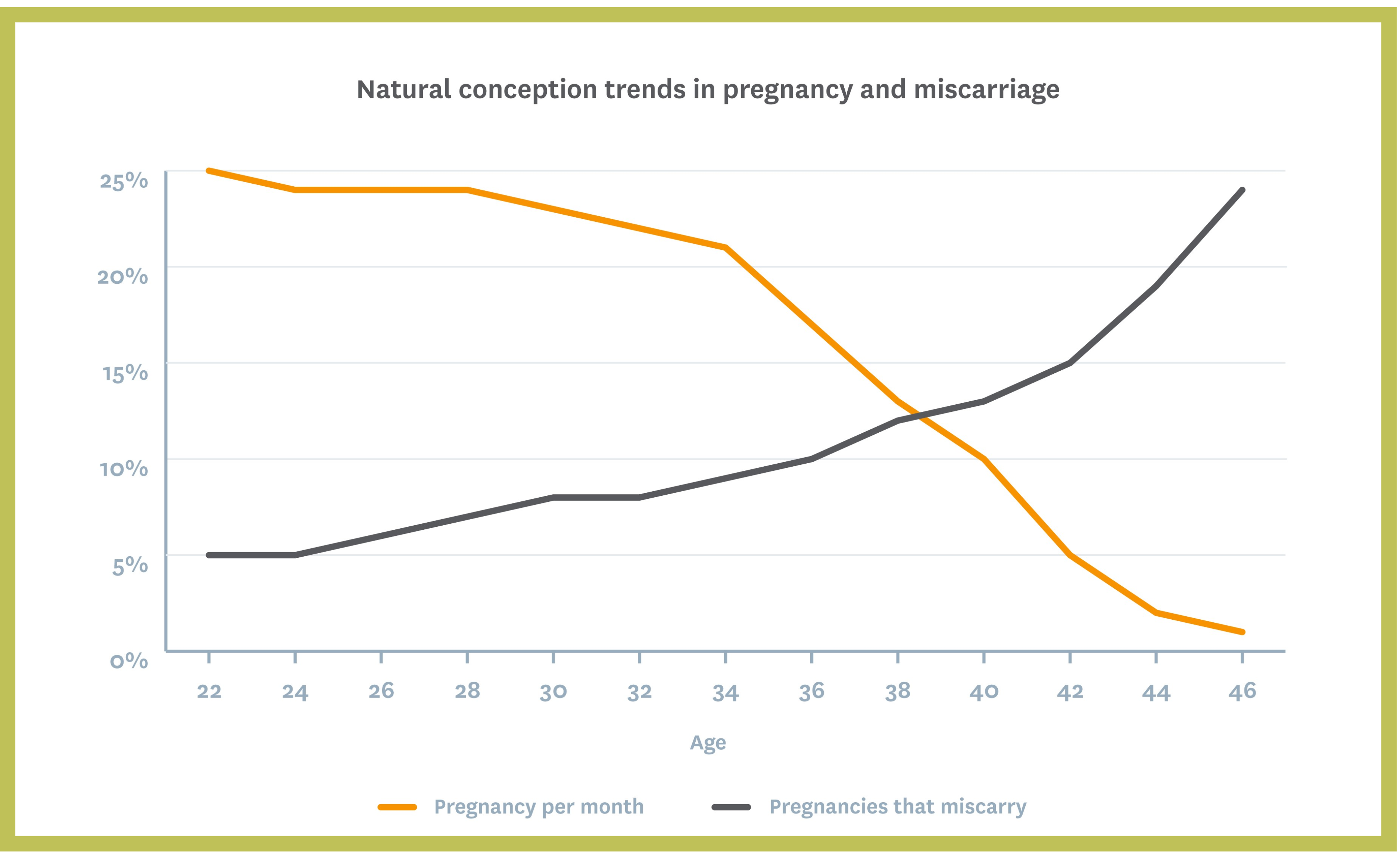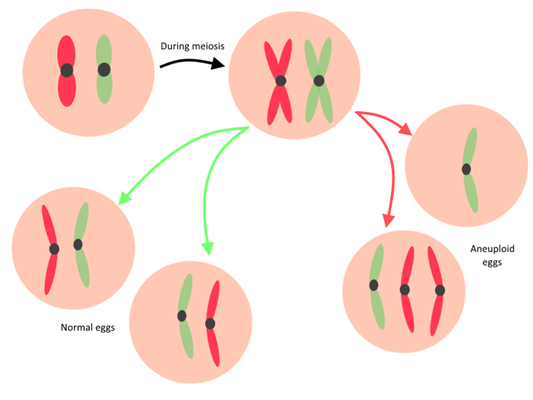For women
The more advanced age a woman is, the more difficult it is to conceive.
Even after pregnancy, there is also a higher chance of miscarriage in women aged 37+.
- Women are born with all the eggs they will ever have, unlike men whose bodies create new sperm indefinitely, although age does affect men’s fertility too.
- Scientists believe that each woman is born with around 2 million eggs, but over time, the quantity and quality diminishes. In fact by puberty, about half is gone, as they deteriorate and be absorbed by the body.
- By age 30, a woman will only have about 6% of the 2 million eggs she was born with.
- By age 40, many women will face difficulty conceiving because fewer than 20% of the remaining eggs are considered ”genetically” normal.

The Biology
- When sex cells divide, they undergo a process called meiosis.
- Telomeres are structures at the end of each chromosomes, similar to the glued tips at the end of shoelaces to prevent from fraying.
- As cells age, telomeres progressively shortens. They act as the ‘aging clock’ in every cell to the point where the telomere is too short and cell division is no longer possible, the cell degenerates and dies.
- As women grow older and when our telomeres shorten, cells tend to make more mistakes when they divide, leading to high chances of chromosomal abnormality.
- These correlates with a lower implantation rate (i.e. pregnancy rate) and higher rate of miscarriage.

As women age, the remaining eggs tend to make more ‘mistakes’ such as missing, damaged or extra chromosome, it leads to difficulty in implantation. This is also the reason behind higher rate of miscarriage in older women. After successful implantation, there’s an increased risk of having a baby with chromosomal abnormality, such as Down’s Syndrome:
- 1 in 1500 at age 25
- 1 in 900 at age 30
- 1 in 350 at age 35
- 1 in 100 at age 40
- 1 in 25 at age 45
Women’s age has been shown to be one of the most important predictors in IVF success.
Anti-Mullerian Hormone (AMH) or testing
Anti-Mullerian Hormone (AMH) is currently the gold standard for ovarian reserve testing.
For some women, the effect of age starts earlier than expected:
- About 10% of women experience menopause 5 years earlier than average – around the age of 45 instead of 50. Their fertility will fall 5 years earlier than average.
- About 1% of women go through menopause 10 years earlier than average, around the age of 35. Their fertility will fall 10 years earlier than average.
An AMH test is useful to understand if a woman will menopause earlier. More about AMH Test here
Ovarian Reserve is a term used to determine the number of eggs left in a woman’s ovaries.
"Whilst high AMH gives some assurance with regards to the number of eggs one has, it is however not an assurance of pregnancy. Even if it is low, it does not necessarily mean that you are infertile." - Dr. Lim Lei Jun, Fertility Specialist.
Anti-Mullerian Hormone (AMH) is the most reliable marker to determine ovarian reserve. It is also the starter test ordered by fertility specialists.
- 20% of women will have either too high or too low AMH.
- Current social trends are clear, women are delaying childbearing into their 30s and in some closer to 40s.
Knowing and tracking one’s AMH level can give a better understanding of reproductive health, to help you make a plan around your unique timeframe.
Whilst high AMH gives some assurance with regards to the number of eggs one has, it is however not an assurance of pregnancy. Even if it is low, it does not necessarily mean that you are infertile.
It helps to understand that your reproductive years may be shorter than you realized. This gets you to plan ahead about starting a family sooner or to consider egg freezing.

